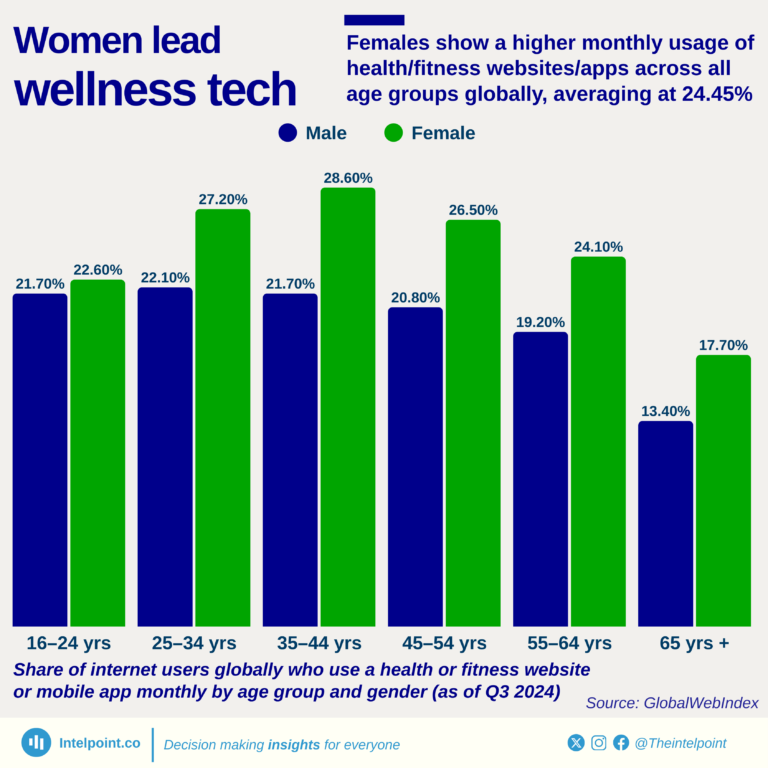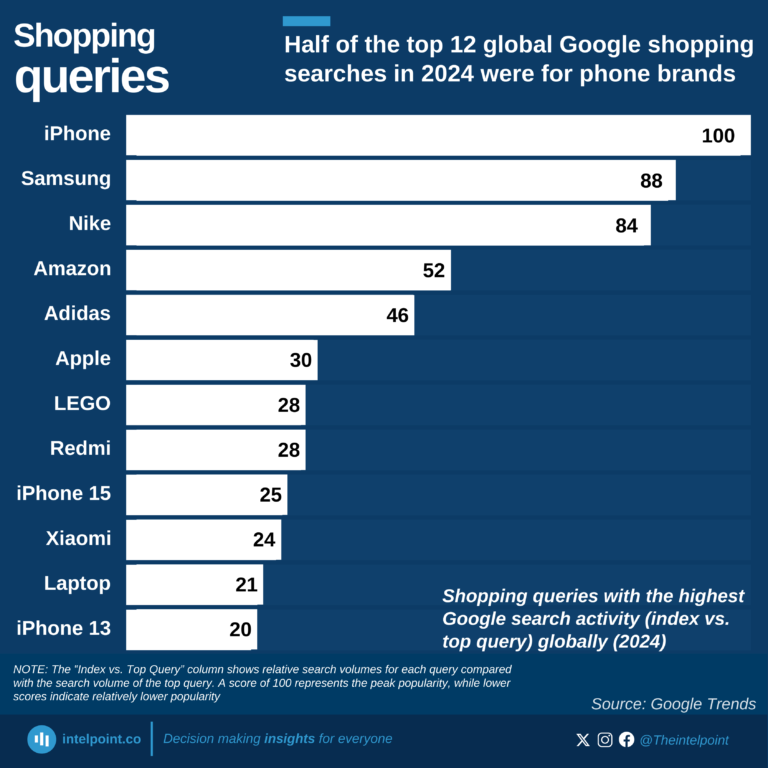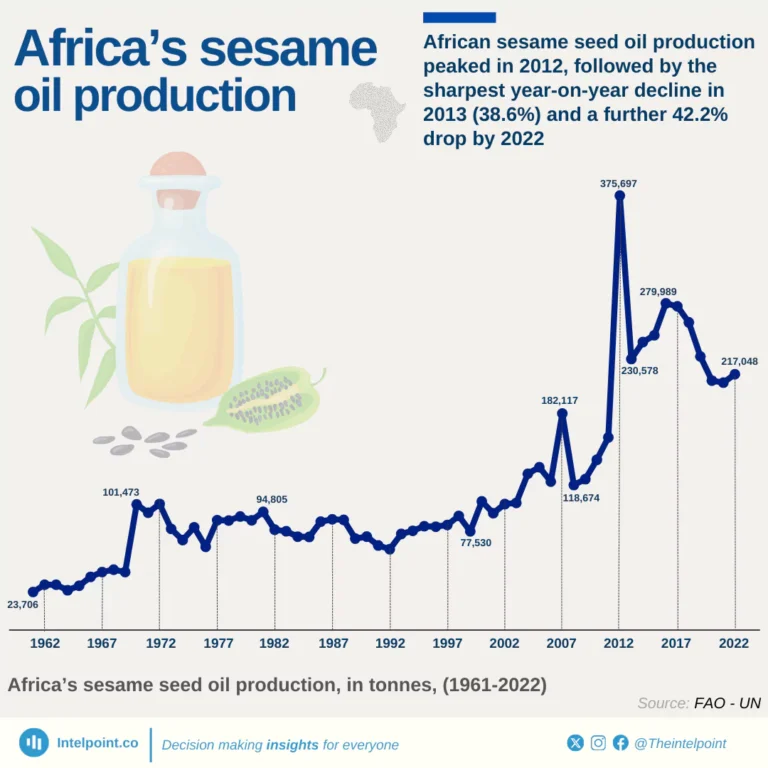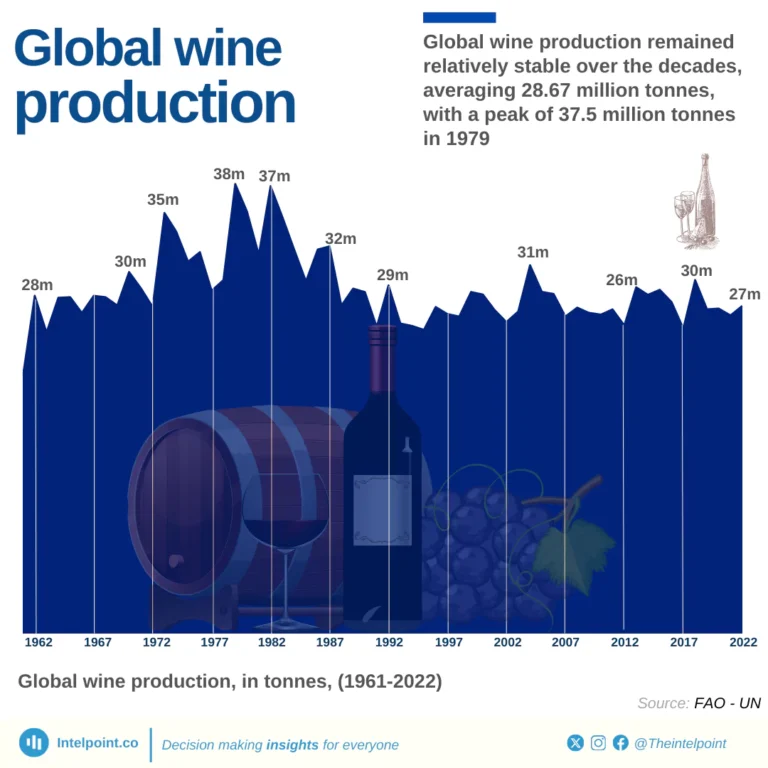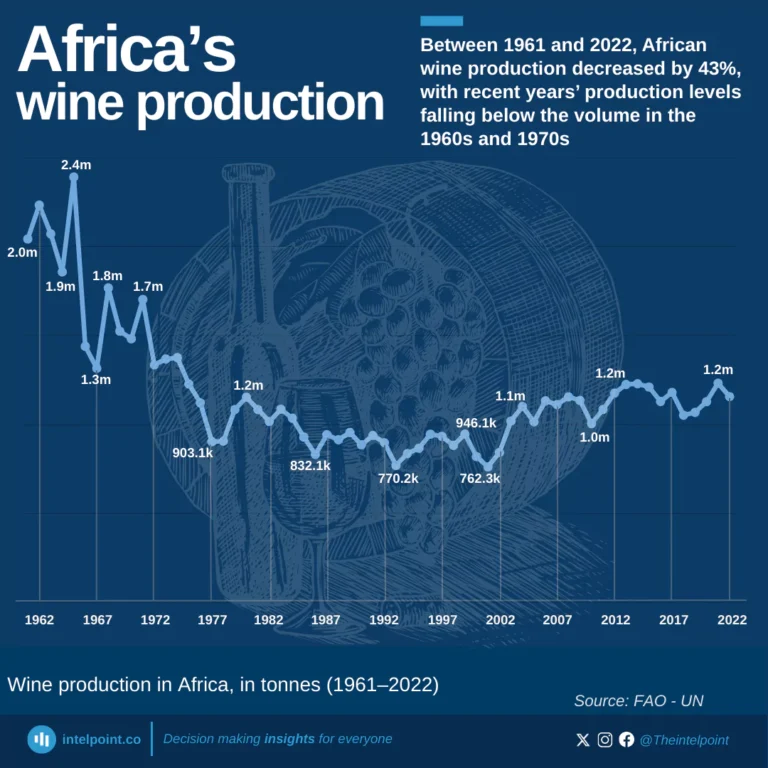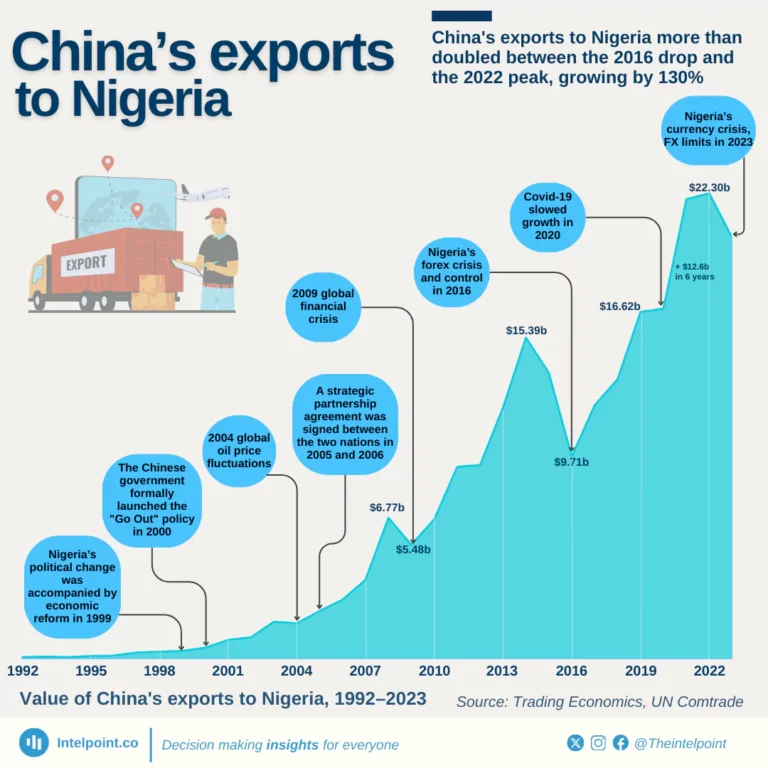
On average, the agricultural sector contributed 24.87% to Nigeria's GDP over the past decade. However, the sector's contribution has been declining since 2020, dropping from 26.21% to 25.18% in 2023.
The sector’s contribution grew between 2014 and 2020, rising from 22.9% to 26.21%. The sector has been plagued with challenges over the past decade, with a couple of them becoming more intense in the past few years

South Africa and Egypt generated 239 terawatt-hours (TWh) and 201 TWh of electricity, respectively, in 2022, accounting for a combined 50% of Africa's 881 TWh. These countries, along with Algeria, Morocco, and Nigeria, accounted for 68% of the continent's total.
Despite being one of Africa's largest economies and having the continent's largest population, Nigeria's electricity generation has historically been lower than its potential.

About 28,844 TWh of electricity was generated globally in 2022. Driven by industrial growth and large populations in countries like China and India, Asian countries collectively accounted for 56%. North America and Europe followed, with 5,432 TWh and 4,731 TWh, respectively.
Africa generated less than 900 TWh, with key contributions from South Africa and Egypt. Oceania, primarily led by Australia, produced 330 TWh.

In 2022, Egypt, South Africa, Nigeria, Algeria, and Morocco collectively consumed an average of 2.712 million barrels of oil per day (Mb/d), 61% of the continent's daily oil consumption (4.478 Mb/d). African countries consumed 4.7% of the global usage (99.8 Mb/d).
Egypt used the most (850.5 thousand barrels per day (Kb/d)), followed by South Africa (601.2 Kb/d) and Nigeria (514.5 Kb/d).

The newly created Ministry of Livestock Development will push Nigeria's ministerial count to 50. President Tinubu's federal executive cabinet is the largest since Nigeria's return to democracy in 1999.
Within the first 12 years of the Fourth Republic, the largest cabinet had 30 ministers. President Jonathan was the first to have more than 30 ministers, with subsequent terms having more ministers.

Internet subscribers in Nigeria increased by 4.3% from 157.6m in March 2023 to 164.4m as of March 2024, an addition of 6.817m new subscribers. Lagos State has the largest share of active internet subscribers in Nigeria, but Nasarawa gained the most new subscribers in one year.
assarawa (604k) got the most new subscribers between Q1 2023 and Q1 2024, followed by Niger (456k) and Kano (387k). Benue (368k) and Kwara (315k) also saw impressive subscriber growth. Bauchi, Taraba, Katsina, Adamawa, and Kogi completed the top ten.

Nigeria's railway goods/cargo transport is experiencing a boost, with goods transported increasing from 9.1k tonnes in Q1 2021 to 160.7k tonnes in Q1 2024, representing 1,671% growth. Revenue has surged by 3,114% from ₦19m to ₦607m in the same period. Revenue has increased in eight consecutive quarters since Q2 2022.


Cocoa beans are a vital commodity for many countries, driving their economies and supporting livelihoods. Over the years, cocoa production has seen significant fluctuations across different countries.
The world's cocoa-producing countries produced 104.2 million tonnes of cocoa beans between 2000 and 2022, enough to fill about 2.084 billion 50kg bags. Côte d'Ivoire maintains its dominance, accounting for 35.3% of global production in the 23 years under review, with Ghana (16.5%), Indonesia (15.4%), and Nigeria (7.7%) completing the top four.
These are the top ten countries in the period.


Since 2005, nationals from China, India, Saudi Arabia, Russia, Pakistan, and Nigeria have ranked among the top three recipients of UK study visas. China led the list from 2010 to 2020. In 19 years, over 1.46 million Chinese nationals (22.9% of the total) received study visas. India followed with 926.9k and Nigeria — which first entered the top three in 2020 — with 436.9k.
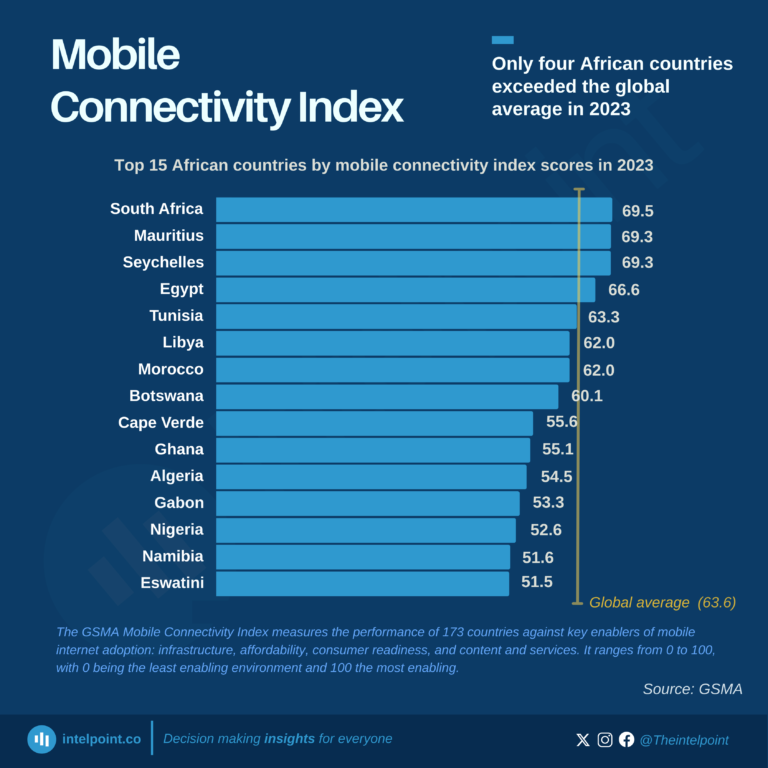
A country with strong infrastructure, affordable services, and high digital literacy, enabling everyone to use fast and reliable mobile internet will have a perfect score (100) on the GSMA's Mobile Connectivity Index 2023. South Africa leads in Africa with 69.53.
Globally, Singapore is first, with a score of 93.7, setting the benchmark for mobile internet adoption. Only four African countries — South Africa, Mauritius, Seychelles, and Egypt — surpassed the global average score.
